Kraken Crypto Trading Restrictions: Blocked Countries & Jurisdictions in 2025
Kraken Trading Restrictions Checker
Enter a country name above to check if you can trade on Kraken.
Residents of these 14 jurisdictions cannot create an account, deposit funds, or trade any digital assets:
- Afghanistan
- Belarus
- Iran
- Iraq
- North Korea
- Russia (including Crimea, Donetsk, Luhansk)
- Syria
- Libya
- Sudan
- South Sudan
- Democratic Republic of the Congo
- Cuba
- Central African Republic
- Eritrea
Kraken is a San Francisco‑based cryptocurrency exchange founded in 2011 by Jesse Powell. It serves users in more than 190 countries while staying tightly aligned with global compliance regimes.
If you’re wondering whether you can trade on Kraken from your home country, this guide breaks down every blocked or limited jurisdiction as of February2025, explains why the restrictions exist, and shows what you can do if you live in a gray area.
Why Kraken Enforces Geographic Restrictions
Kraken’s restriction matrix is driven by three main forces:
- International sanctions - nations like North Korea or Iran are on U.S. Office of Foreign Assets Control (OFAC) lists, so Kraken must block any service to them.
- Local regulator mandates - the European Economic Area (EEA) follows the Markets in Crypto‑Assets (MiCA) framework, the U.S. follows state‑by‑state securities rules, and Australia’s AUSTRAC demands strict anti‑money‑laundering checks.
- Licensing obligations - Kraken holds a Money Services Business (MSB) registration with FinCEN, an FCA‑regulated subsidiary in the United Kingdom, and a Special Purpose Depository Institution (SPDI) charter in Wyoming. Each licence comes with its own geographic caveats.
Fully Blocked Countries (Complete Service Ban)
Residents of the following 14 jurisdictions cannot create a Kraken account, deposit funds, or trade any digital assets. The block is absolute because these locations are either sanctioned by major regulators or lack a legal framework for crypto services.
- Afghanistan
- Belarus
- Iran
- Iraq
- North Korea
- Russia (including Crimea, Donetsk, Luhansk)
- Syria
- Libya
- Sudan
- South Sudan
- Democratic Republic of the Congo
- Cuba
- Central African Republic
- Eritrea
Partially Restricted Jurisdictions
In many places Kraken offers a limited suite of services. Below is a quick view of what you can expect.
| Jurisdiction | Restriction Type |
|---|---|
| United States | State‑level bans (e.g., no XRP, no Euro funding in NH & TX); specific token blocks (EWT, GRT, FLOW); 28‑day margin limits |
| Canada | No EWT, GRT, FLOW; same margin window as US |
| Australia | Privacy coins (DASH, XMR, ZEC) cannot be funded, traded or held |
| Japan | No FLOW; extra JPY‑specific documentation; tighter AML checks |
| European Economic Area (MiCA compliant countries) | Stablecoin delisting (USDT, USDC, TUSD, EURt, TerraClassic); limited new token listings until MiCA guidance finalizes |
| South Africa | Only spot trading; futures and margin unavailable |
| Namibia | Verification requires additional government‑issued ID; higher KYC latency |
Deep Dive: United States State‑Level Rules
The U.S. market is split into three categories:
- Full access - most states allow spot, margin, and staking, but with token‑specific bans (e.g., no XRP) and a 28‑day margin window.
- Pre‑verification only - residents of Washington State and New York can open an account, but trading is paused until local regulators approve a separate licence.
- Currency limits - New Hampshire and Texas users cannot fund, trade, or hold Euros, which affects EUR‑denominated stablecoins.
Attempting to bypass these rules with a VPN triggers account termination. Kraken’s IP‑geolocation engine cross‑checks the reported residence against the proof‑of‑address document, and any mismatch flags the account for review.
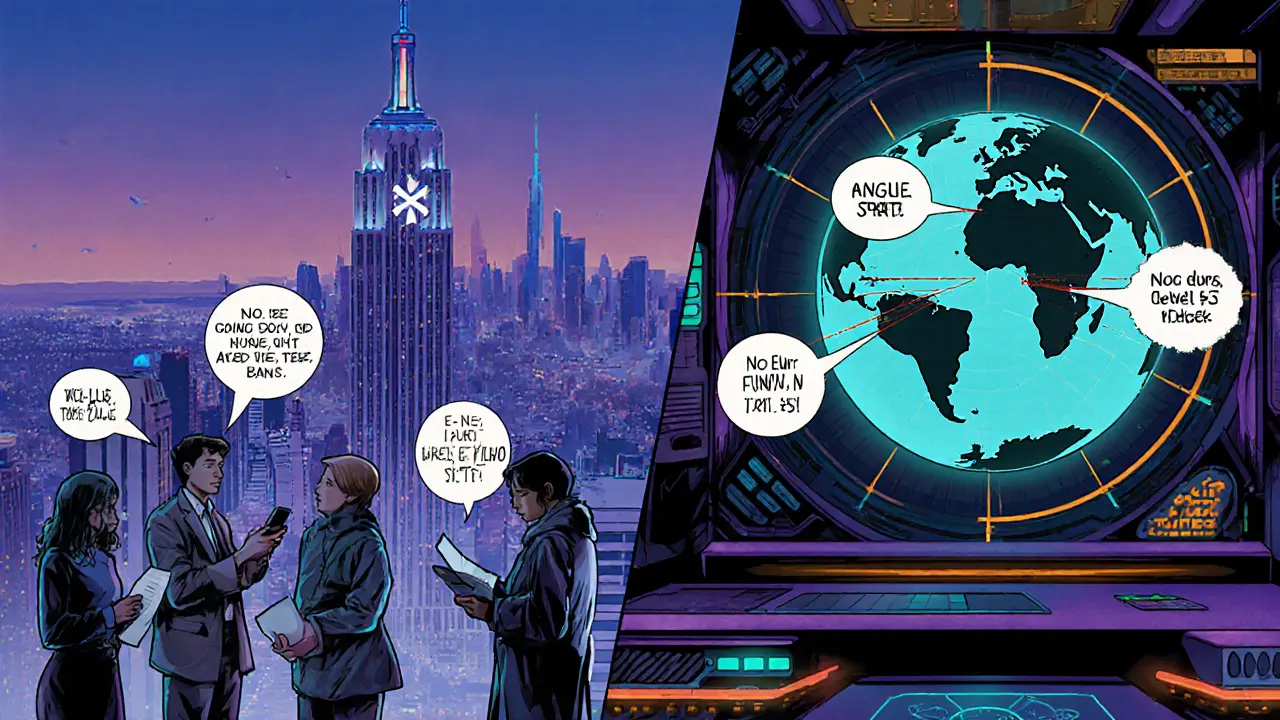
European Stablecoin Delisting Explained
MiCA forced Kraken to pull five major stablecoins from all EEA accounts. The rollout followed a strict timeline:
- Feb132025 - Reduce‑only mode (no new buys)
- Feb272025 - Sell‑only mode (can only sell holdings)
- Mar172025 - Margin positions on those stablecoins closed
- Mar242025 - Spot trading terminated
- Mar312025 - Remaining balances automatically converted to compliant assets
For traders, the practical tip is to unwind any USDT, USDC, TUSD, EURt, or TerraClassic positions before the sell‑only date to avoid forced conversion at potentially unfavorable rates.
How Kraken Verifies Your Location
The verification flow is the same worldwide, but each jurisdiction adds its own document checklist.
- IP Geolocation - Kraken logs the IP address at sign‑up and continuously monitors for changes.
- Government‑issued ID - Passport, national ID card, or driver’s license must match the name on the account.
- Proof of Residence - Utility bill or bank statement dated within the last 90days.
- Ongoing Transaction Monitoring - Automated systems flag trades that appear to originate from a blocked jurisdiction.
Standard verification takes 24-48hours; enhanced verification (e.g., for institutional clients or high‑risk countries) can stretch to 7days.
What to Do If You Live in a Blocked Jurisdiction
Kraken doesn’t offer a legal workaround, but you have options:
- Find a compliant local exchange that holds the licenses required in your country.
- If you hold assets on Kraken already, initiate a withdrawal to a personal wallet before the account is frozen.
- Monitor regulatory updates - sanctions lists and MiCA guidelines evolve, and Kraken may reopen certain markets once compliance is attainable.
Skipping the withdrawal step or trying to hide your IP can lead to permanent loss of funds as Kraken freezes assets to meet AML obligations.
Future Outlook: Potential Changes in 2025‑2026
Analysts expect two major shifts that could affect the restriction landscape:
- Washington & New York licensing - Kraken is negotiating with state regulators; approval could unlock full US services by early 2026.
- MiCA implementation tweaks - The European Commission may issue grace‑period extensions for stablecoins, meaning some delisted assets could return under tighter reporting rules.
Keeping an eye on Kraken’s official blog and regulator press releases will help you adapt quickly.
Quick Reference Checklist
- Check your country against the Kraken blocked jurisdictions list.
- If you’re in the US, verify state‑level token bans (XRP, EWT, GRT, FLOW).
- European traders: plan to exit USDT/USDC/etc. before March2025 sell‑only date.
- Never use VPNs to mask your location - Kraken will close the account.
- Prepare all required KYC documents to avoid verification delays.
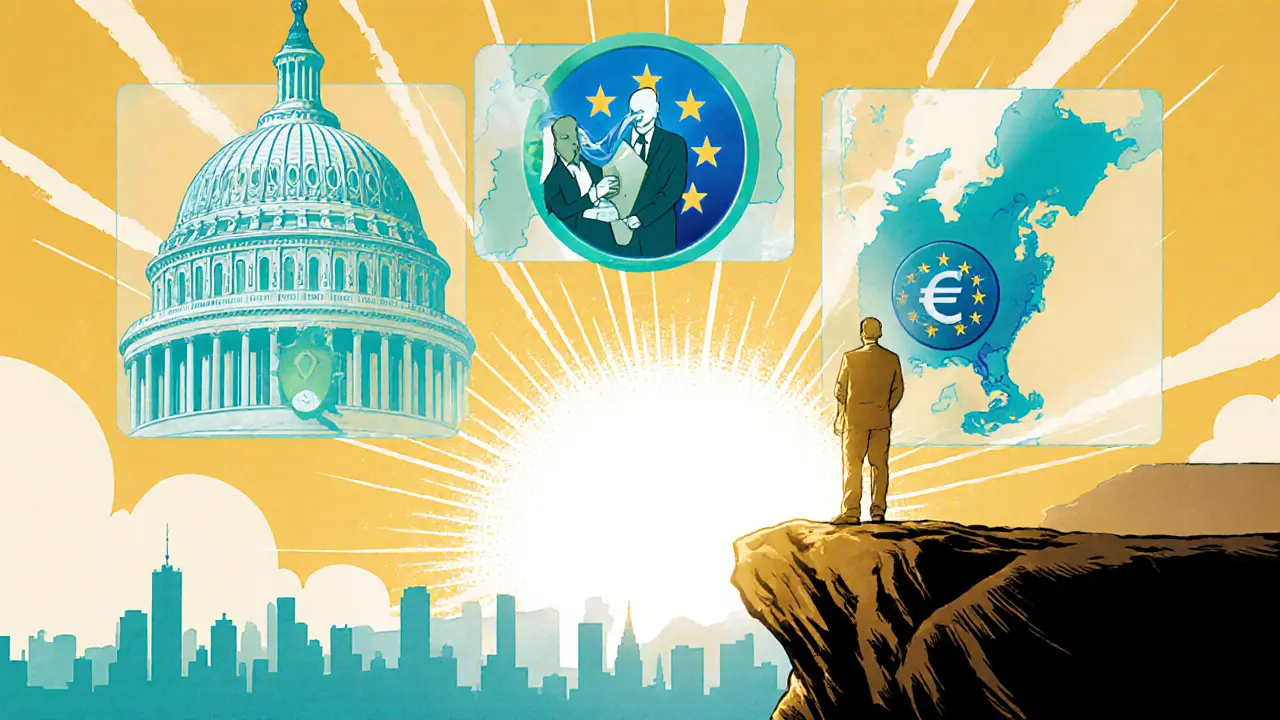
Frequently Asked Questions
Can I trade on Kraken from a sanctioned country?
No. Kraken blocks account creation, deposits, and trading for all users in the 14 fully sanctioned jurisdictions listed earlier. Attempting to bypass this restriction will result in account termination and asset freeze.
Why is XRP unavailable in the United States?
The US Securities and Exchange Commission treats XRP as a security pending further litigation. Kraken therefore removed XRP from its US product list to stay compliant.
When does the European stablecoin delisting take effect?
The phased rollout started on 13February2025 (reduce‑only) and ends on 31March2025 with automatic conversion of remaining balances.
I live in Canada. Which tokens are blocked for me?
Canadian residents cannot trade EWT, GRT, or FLOW, and they face the same 28‑day margin position limit as US users.
Will Kraken ever reopen services in Russia?
Reopening would require a major shift in US and EU sanctions policy. Until those restrictions lift, Kraken is unlikely to resume services in Russia or its occupied territories.
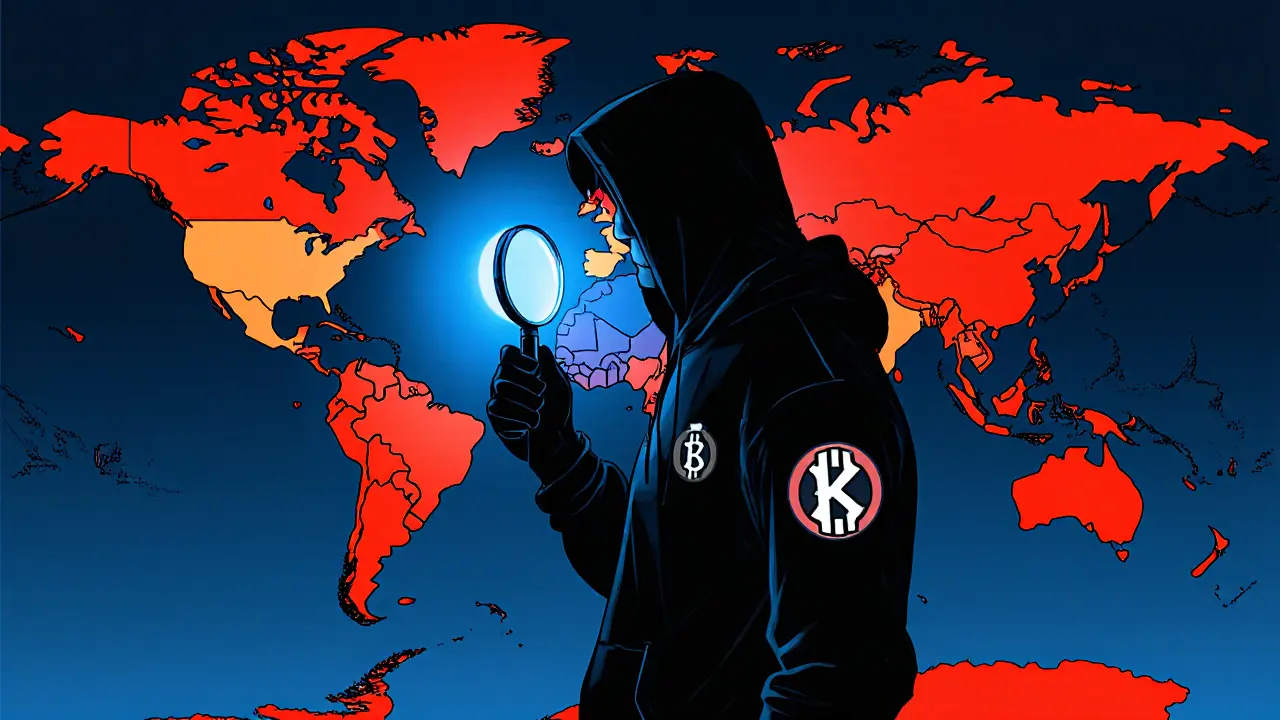
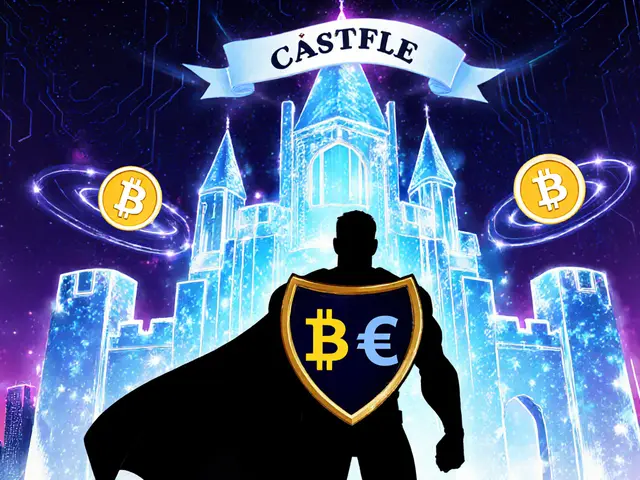
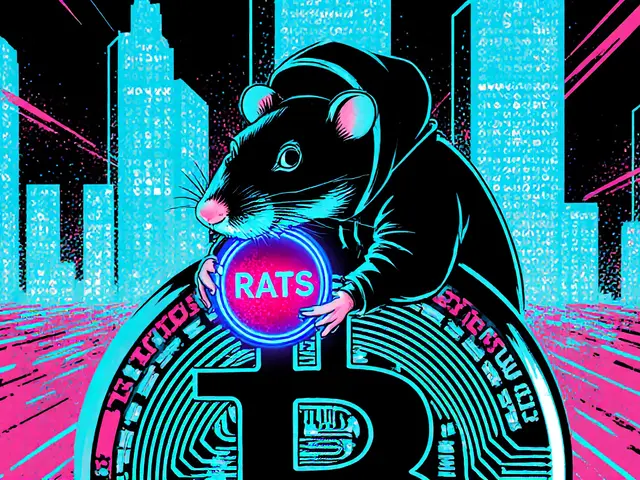
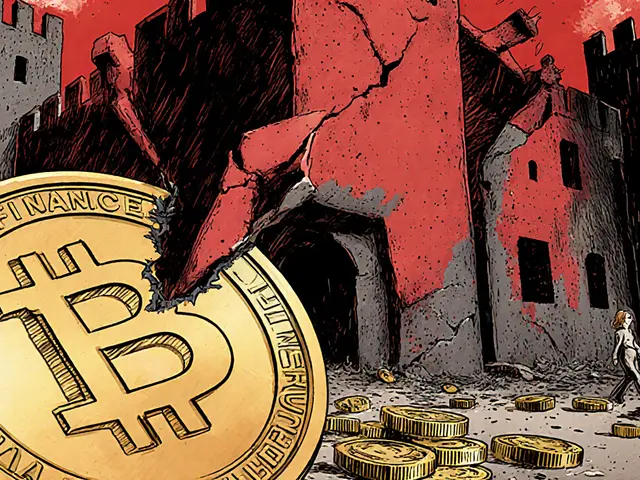
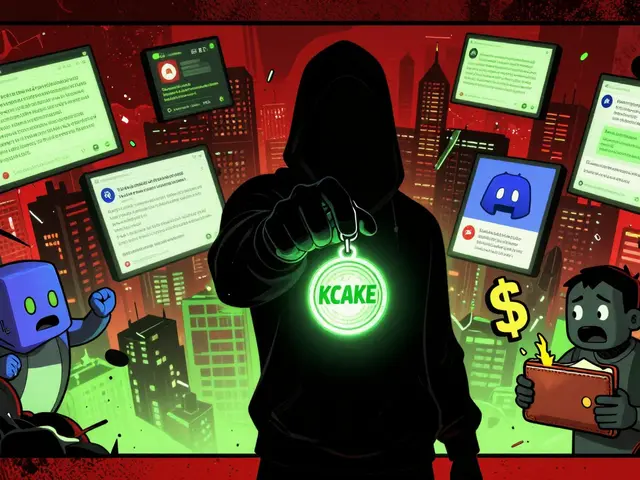
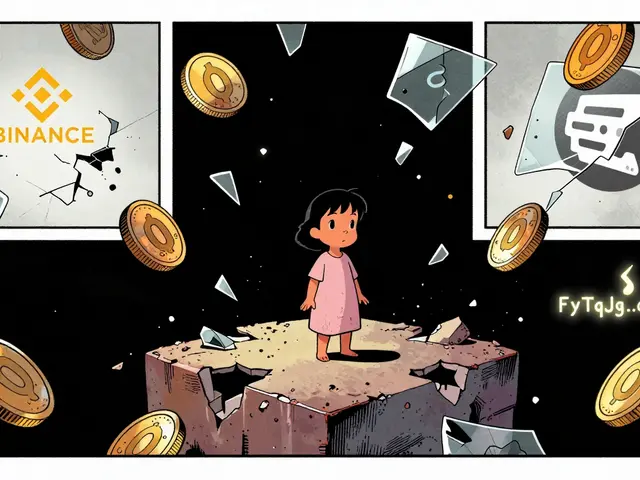
13 Comments
katie littlewood
May 16 2025What a brilliant compendium of Kraken's geographic maze; the author has tidied up a tangled web of sanctions, local rules, and licensing quirks into a glittering guide that even a newcomer can navigate with confidence. Every blocked jurisdiction is highlighted with a bold brushstroke, making the stark reality of sanctions feel almost like a colorful map of caution. The partial restrictions section reads like a treasure chest of nuanced details, from state‑level token bans in the U.S. to privacy‑coin prohibitions down under, each item sparkling with clarity. I especially love the way the piece walks us through the MiCA‑driven stablecoin delisting, turning a potentially bewildering regulatory sprint into a clear, step‑by‑step runway. The timeline of reduce‑only to sell‑only phases is laid out with such vivid precision that even the most skeptical trader can picture their portfolio adjustments months ahead.
Beyond the facts, the guide radiates optimism, reminding us that regulatory landscapes, while rigid, are also evolving, and that keeping an eye on Kraken’s blog can turn uncertainty into opportunity. The author doesn’t just list restrictions; they provide actionable advice, like unwinding USDT positions before the March sell‑only deadline, which feels like a friendly hand guiding you past a hidden reef. The tone is inclusive, inviting readers from every corner of the globe to check their status, and the interactive checker tool adds a dash of interactivity that feels both modern and empowering.
In short, this article is a masterclass in crypto compliance communication-clear, comprehensive, and creatively presented-making the labyrinth of Kraken’s restrictions feel less like a wall and more like a well‑marked trail.
Jenae Lawler
May 26 2025The author’s exposition, while exhaustive, reflects an over‑reliance on regulatory dogma to the detriment of market dynamism. By equating jurisdictional compliance with an immutable fortress, the piece inadvertently stifles the entrepreneurial spirit that should challenge such constraints. One must question whether the relentless cataloguing of bans serves to educate or merely to reinforce a status‑quo complacency. Moreover, the language employed is pedantic, bordering on the pretentious, as if the mere enumeration of statutes conveys intellectual superiority. In a truly progressive discourse, the analysis would have interrogated the underlying geopolitics rather than simply reciting them.
Chad Fraser
June 6 2025Hey folks, great rundown! This guide makes it way easier to see where we can actually trade without headaches. If you're in a gray area, just follow the tip to withdraw to your own wallet before any freeze-saves a ton of stress. Keep an eye on the state‑level updates in the US; things could open up soon. Let’s keep the momentum and share any new info we spot!
Jayne McCann
June 16 2025I don’t see why anyone would bother with a blocked country when the rules are crystal clear.
Sophie Sturdevant
June 27 2025Team, let’s dissect the compliance matrix with a focus on AML/KYC metrics. The KYC latency in Namibia, for instance, impacts transaction throughput-optimize your onboarding pipelines accordingly. For US traders, the 28‑day margin window necessitates precise risk modeling; integrate real‑time margin alerts to stay within limits. Australian users must avoid privacy‑coin exposure-configure your asset filters to block DASH, XMR, ZEC at the gateway level. Finally, align your order‑routing logic with regional token bans to prevent illegal execution paths.
Jan B.
July 7 2025Kraken blocks fourteen jurisdictions. Residents cannot open accounts. No deposits are allowed. No trading is possible. Users should check the list before signing up.
MARLIN RIVERA
July 18 2025The article reads like a bureaucratic shopping list, but it fails to address why these restrictions matter for market integrity. Simply dumping sanction lists without analysis is lazy. Traders deserve insight, not just a static table. The tone is sterile, ignoring the real risk of illicit flows. A deeper dive into AML effectiveness would have been worthwhile.
Debby Haime
July 28 2025Awesome summary! It’s reassuring to see Kraken taking compliance seriously while still offering robust tools. For anyone on the fence, remember that the KYC timeline is usually under two days-speedy enough for most plans. Keep your documents handy and you’ll be trading in no time. Let’s stay positive and keep sharing updates.
emmanuel omari
August 8 2025Listen, the sanctions are not arbitrary; they’re backed by national security imperatives. Anyone claiming these blocks are merely corporate overreach is ignoring the geopolitical reality. My country’s stance aligns with the US, so we must respect these limitations. If you think you can skirt them, you’re naive and risking severe penalties. Stay compliant, stay safe.
Andy Cox
August 18 2025Interesting take on the regional rules, especially the US state nuances. The list shows how varied regulation can be across borders. It’s a good reminder to double‑check local guidelines before diving in. I’ll keep an eye on any updates as they roll out.
Courtney Winq-Microblading
August 29 2025Reading this feels like navigating a philosophical labyrinth where law and liberty intersect. Each blocked jurisdiction is a silent testimony to the tension between sovereign authority and individual autonomy. The author’s meticulous charting reminds us that freedom in the digital realm is never absolute, but always negotiated. Perhaps the true insight lies not in the list itself, but in the quiet invitation to reflect on why those borders exist at all. In the end, understanding the constraints can inspire a deeper appreciation of the freedoms we still possess.
Stefano Benny
September 8 2025Not sure everyone agrees, but the granular state‑level bans in the US actually showcase Kraken’s adaptive compliance model 🙂. The MiCA delisting timeline is just a temporary pause, not a permanent loss of options. Keep watching the official channels for tweaks 🚀.
Bobby Ferew
September 19 2025Well, another exhaustive list that will probably make the average trader feel even more overwhelmed. The jargon is heavy, but at least it sounds important. I guess some people will find comfort in the sheer volume of restrictions. Meanwhile, I’ll just wait for the next update and hope something changes.